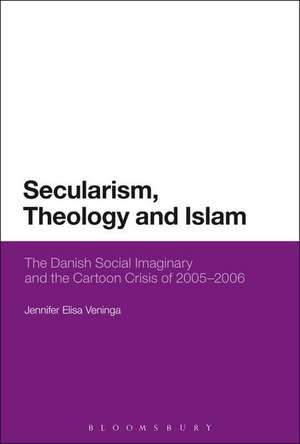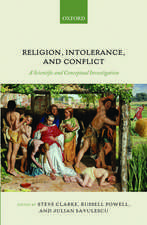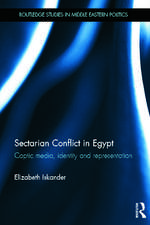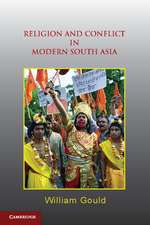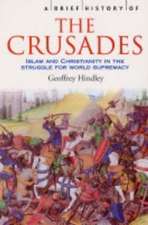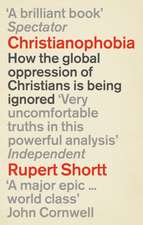Secularism, Theology and Islam: The Danish Social Imaginary and the Cartoon Crisis of 2005–2006
Autor Jennifer Elisa Veningaen Limba Engleză Hardback – 26 mar 2014
| Toate formatele și edițiile | Preț | Express |
|---|---|---|
| Paperback (1) | 256.59 lei 6-8 săpt. | |
| Bloomsbury Publishing – 23 sep 2015 | 256.59 lei 6-8 săpt. | |
| Hardback (1) | 773.23 lei 6-8 săpt. | |
| Bloomsbury Publishing – 26 mar 2014 | 773.23 lei 6-8 săpt. |
Preț: 773.23 lei
Preț vechi: 1112.59 lei
-31% Nou
Puncte Express: 1160
Preț estimativ în valută:
148.03€ • 153.87$ • 122.73£
148.03€ • 153.87$ • 122.73£
Carte tipărită la comandă
Livrare economică 07-21 februarie 25
Preluare comenzi: 021 569.72.76
Specificații
ISBN-13: 9781472533111
ISBN-10: 1472533119
Pagini: 224
Ilustrații: black & white illustrations
Dimensiuni: 156 x 234 x 14 mm
Greutate: 0.49 kg
Ediția:New.
Editura: Bloomsbury Publishing
Colecția Bloomsbury Academic
Locul publicării:London, United Kingdom
ISBN-10: 1472533119
Pagini: 224
Ilustrații: black & white illustrations
Dimensiuni: 156 x 234 x 14 mm
Greutate: 0.49 kg
Ediția:New.
Editura: Bloomsbury Publishing
Colecția Bloomsbury Academic
Locul publicării:London, United Kingdom
Caracteristici
Offers an analytical framework applicable to a wide variety of contemporary social and political issues
Notă biografică
Jennifer Elisa Veninga is Assistant Professor of Religious and Theological Studies at St. Edward's University in Austin, Texas, USA.
Cuprins
Introduction1. A Historical Sequence of Events: The Crisis of 2005 - 20062. Immediate Interpretations of the Crisis3. The Social Imaginary as Theological Methodology4. Popular Understanding: Folkelighed and N.F.S. Grundtvig5. Popular Practices and their Critique: The People's Church and theWelfare System6. Contextualizing the Danish Social Imaginary: Difference, Othernessand Islam 7. The Cartoons as Expression of Encounter Conclusion: The Possibilities of Paradox and Theology for a Secular Age
Recenzii
.a stimulating, necessary book that both throws important light on the cartoon crisis on Denmark as a nation.
This thorough analysis of the Cartoon Crisis offers readers several rewards. It explains and analyzes the historical roots and as well as the contemporary social background of the so-called cartoon crisis in Denmark in 2005. Furthermore, it invites readers to a discussion of the many challenges confronting both the majority and minority´s social imaginary when daily life is forced to come face to face with cultural diversity and the presence of different religions.
This thorough analysis of the Cartoon Crisis offers readers several rewards. It explains and analyzes the historical roots and as well as the contemporary social background of the so-called cartoon crisis in Denmark in 2005. Furthermore, it invites readers to a discussion of the many challenges confronting both the majority and minority´s social imaginary when daily life is forced to come face to face with cultural diversity and the presence of different religions.
